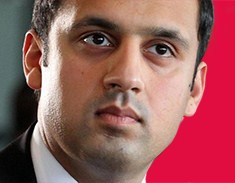
An ambitious project to bring history to life to promote the Antonine Wall and its fascinating past has received initial support from the Heritage Lottery Fund (HLF).
Rediscovering the Antonine Wall will be led by West Dunbartonshire Council in partnership with Glasgow City Council, East Dunbartonshire Council, North Lanarkshire Council, Falkirk Council and Historic Environment Scotland (HES). It aims to engage local communities along the length of the Antonine Wall ─ a World Heritage Site since 2008 ─ to develop proposals for Roman-themed play spaces, replica stone slabs which marked distance points along the route and a community-led video tour of the Wall.
The project aims to increase awareness and understanding of the historic site, including the area of the exposed Wall rampart which lies within Goldenhill Park, Clydebank.
Development funding of £97,000 has been awarded to help West Dunbartonshire Council and its partners progress the plans to allow the group to apply for a full grant next year to implement the project.
Training, local content development and community-led events will underpin the delivery of the full three year project and ensure that what is delivered is unique to each area of the Wall and carefully curated to meet the needs of individual local communities. A Project Manager has been appointed to deliver the development phase and during 2017-18, Emma McMullen will work with communities and key stakeholders to develop the final designs and briefs for a range of products.
These will include: five new replica distance slabs (similar to that in Bridgeness, Falkirk); new interpretive play spaces that will see themed equipment merged with digital content to create exciting new learning environments; a series of arts/performance events designed and delivered by local communities; and the recruiting of a ‘21st century Legion’ to help promote the Antonine Wall in local areas.
The Antonine Wall (www.antoninewall.org) was constructed in the second century AD and is one part of the much larger Frontiers of the Roman Empire World Heritage Site (FREWHS), alongside Hadrian’s Wall and the German Limes. Extending 37 miles from Old Kilpatrick (in West Dunbartonshire) in the west to Carriden (in Falkirk) to the east, the Antonine Wall represents the most north-westerly extent of the Roman Empire’s general system of defence. Today, visitors can explore traces of ramparts, steep ditches, and the remains of forts and bathhouses – and imagine what life was like for the Romans posted on this remote frontier.
Lucy Casot, Head of the Heritage Lottery Fund in Scotland, said: “Stretching from one side of the country to the other, what was once built as a barrier will bring the communities along its length together to explore and celebrate their shared heritage thanks to funding from the National Lottery. It’s an opportunity to raise the profile of this incredible feat of construction while benefitting communities across five regions of Scotland. We are excited to see the plans develop.”
HES World Heritage Co-ordinator Patricia Weeks said: “Working with local communities and partners to enhance and improve the local historic environment across Scotland is a hugely important part of what we do. We’re pleased to be collaborating on this exciting project with our five council partners to help both local communities and visitors to the region to rediscover the Antonine Wall.”
Notes
First-round pass
Heritage Grants applications are assessed in two rounds. A first-round pass is given when HLF has endorsed outline proposals and earmarked funding. A first-round pass may also include an immediate award to fund the development of the project. Detailed proposals are then considered by HLF at second-round and as long as plans have progressed satisfactorily and according to the original proposal, an award for the project is confirmed.
About West Dunbartonshire Council
West Dunbartonshire Council serves 89,810 residents and a lively business community in an area stretching from the banks of Loch Lomond to the shores of the Clyde. The region is one of great diversity and natural beauty, just half an hour from the heart of Glasgow, and includes the towns of Clydebank, Dumbarton and Alexandria. It has a rich past, shaped by its world-famous shipyards, and boasts many attractions, ranging from the rugged beauty of Dumbarton Rock to historic whisky warehouses. The Council has big ambitions to deliver first class services, grow the local economy, revitalise the region’s town centres and waterfront, and provide a modern education service for future generations.
Antonine Wall Partnership
This is the first pan Antonine Wall project designed to increase awareness and understanding of, and engagement with the Frontiers of the Roman Empire World Heritage Site. The Management Plan partners (Historic Environment Scotland, West Dunbartonshire, East Dunbartonshire, Glasgow City, Falkirk and North Lanarkshire Councils) have collaborated to design a series of initiatives – in response to community and stakeholder interests – that will be delivered over a three year period, creating direct and indirect benefit to areas adjacent to the line of the Wall and beyond.
About the Heritage Lottery Fund
Using money raised through the National Lottery, the Heritage Lottery Fund (HLF) aims to make a lasting difference for heritage, people and communities across the UK and help build a resilient heritage economy. From museums, parks and historic places to archaeology, natural environment and cultural traditions, we invest in every part of our diverse heritage. www.hlf.org.uk
For further information, images and interviews, please contact: Stef Lach, West Dunbartonshire Council, on tel: 01389 737529 or email: stef.lach@west-dunbarton.gov.uk




